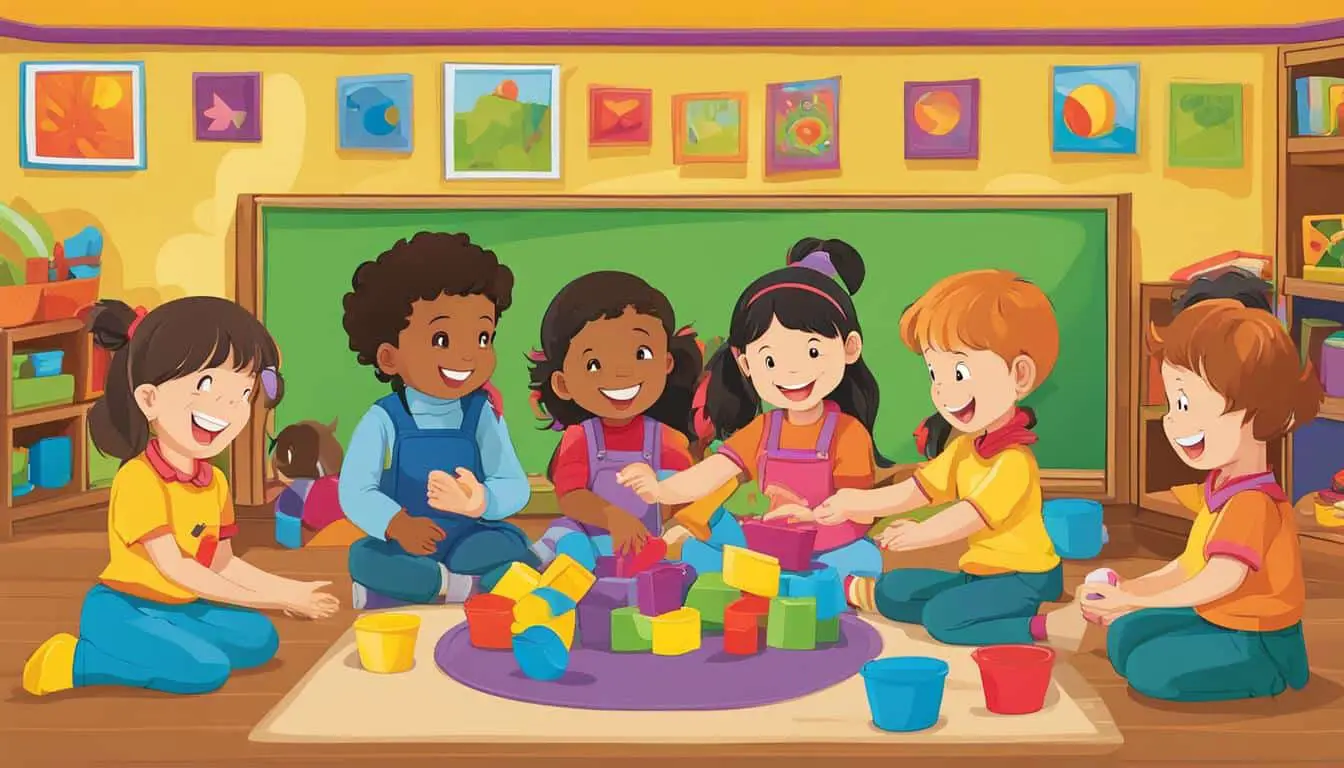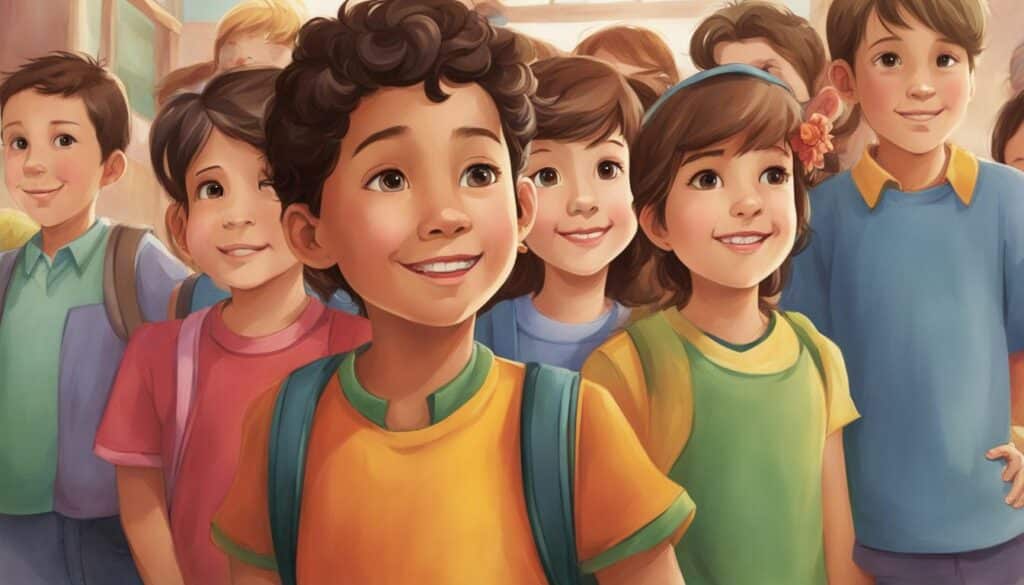
The Influence of Peer Relationships on Child Development
Welcome to my article discussing the profound impact peer relationships have on the development of children. As children grow, their environment, including the people around them, has a significant influence on their overall growth and personality development. Peer relationships, especially during early childhood and adolescence, are critical to shaping a child’s social, emotional, and academic skills.
Peers are some of the most important individuals children interact with regularly, and the influence they have on the child cannot be overemphasized. It is essential to understand how peer relationships can impact a child’s development, both positively and negatively.
Key Takeaways
- Peer relationships play a crucial role in the social, emotional, and academic development of children.
- Positive peer interactions help children develop necessary social skills such as communication and empathy.
- Supportive peers can boost a child’s self-esteem and confidence.
- Peer relationships can either enhance or hinder a child’s learning and academic success.
- Fostering positive peer relationships can support the overall well-being of children.
Social Skills Development Through Peer Relationships
Interacting with peers is essential in a child’s social skills development. It is through peer relationships that children learn and practice various social abilities that are crucial for healthy development. Communication, cooperation, and empathy are examples of such vital social skills that are developed through peer relationships.
During childhood, social skills are shaped and refined based on interactions with peers and adults. In a peer relationship, children learn to use language, listen attentively, share ideas, and work cooperatively to resolve conflicts. Furthermore, engaging with peers helps children develop empathy, in which they learn to understand and identify with the emotions and feelings of others. This ability is essential in building healthy relationships and paving the way for a fulfilling life.
Peer Relationships vs. Adult Relationships
While adult relationships can offer guidance and support, peer relationships are distinctive in shaping social and communicative abilities. Unlike what adults may offer, interacting with peers allows children to express themselves in a safe space without being critiqued harshly or judged. Peers are also more likely to experience similar social learning stages and hence have a better understanding of what the child is going through. This comprehension will motivate children to practice the skills they already possess and enhance their social abilities.
“Peers are uniquely positioned to offer social support, perspective taking, and exploration of identity in a judgment-free zone.”
In Table 1 below, we have summarized some of the crucial social skills that children develop through peer interactions.
| Social Skills | Description |
|---|---|
| Communication | Learning to express oneself verbally and non-verbally and understanding the impact of one’s language on others. |
| Cooperation | Working together towards a common goal, sharing space, and materials, listening, and working towards common goals. |
| Empathy | Understanding and relating to the feelings and perspectives of others. |
| Assertiveness | Confidently expressing oneself and one’s ideas, setting boundaries and standing up for oneself while showing respect for others. |
Overall, we can conclude that developing social skills is critical for healthy child development, and peer relationships are an essential part of this process. It is during peer interactions that children learn and practice valuable social abilities that shape their overall well-being and pave the way for a fulfilling future.
Self-Esteem and Peer Relationships
The relationships children develop with their peers can have a significant impact on their self-esteem. Positive interactions with peers can foster a sense of belonging and validation, helping children feel valued and respected. Conversely, negative encounters may cause children to question their self-worth and undermine their confidence. Therefore, it is essential to encourage interactions that are supportive, positive, and respectful.
Children who experience positive peer relationships generally have higher self-esteem, better behavioral adjustment, and a positive outlook on life. On the contrary, those who face bullying, rejection, or exclusion from peers tend to suffer from low self-esteem, depression, and social anxiety. Therefore, parents and educators must put in place appropriate measures to ensure that youth have access to safe and supportive environments that foster healthy peer relationships.

Moreover, adults can play a significant role in fostering positive peer relationships by modeling communication, empathy, and cooperation. Teaching children conflict resolution, negotiation, and problem-solving skills can empower them to deal with difficult or emotional situations constructively. Overall, positive peer relationships can contribute to the development of healthy self-esteem and promote resilience in children, enabling them to face life’s challenges with confidence and optimism.
Academic Success and Peer Relationships
As children progress through their academic journey, peer relationships can play a significant role in their academic success. Positive interactions with peers can foster a supportive learning environment, encouraging children to engage in classroom activities and develop a love of learning. On the other hand, negative interactions can have a detrimental effect on children’s motivation, leading to disinterest in learning and poor academic performance.
Research shows that children who have strong peer support networks have better academic outcomes than those who do not. Peer support can come in various forms, such as study groups, peer tutoring, or even just regular peer interactions during breaks between classes. These interactions can provide opportunities for collaborative learning, discussion, and feedback, all of which can improve academic performance.
However, peer relationships can also have negative effects on academic performance. Bullying, exclusion, and peer pressure can all contribute to poor academic outcomes, highlighting the importance of fostering positive peer interactions in school environments. Educators and parents can play an active role in promoting positive peer relationships by creating opportunities for collaboration, emphasizing empathy and respect, and addressing any negative behaviors immediately.

In conclusion, peer relationships have a significant impact on academic success. Positive interactions can enhance motivation, boost engagement, and foster a love of learning, while negative interactions can lead to disinterest in learning and poor academic outcomes. Therefore, it is crucial to create an environment that prioritizes positive social interactions, encouraging children to support and learn from one another.
Conclusion:
In conclusion, peer relationships play a significant role in shaping a child’s development. Positive peer interactions can enhance social skills, promote healthy self-esteem, and contribute to academic success. On the other hand, negative relationships can have adverse effects on a child’s well-being. As parents and educators, it is crucial to prioritize fostering positive peer relationships and providing opportunities for children to engage in social interactions with their peers. By doing so, we can support their overall growth and development.
FAQ
How do peer relationships influence child development?
Peer relationships have a significant impact on child development. Interacting with peers helps children develop social skills, self-esteem, and academic success. Positive peer interactions contribute to healthy development, while negative experiences can have adverse effects on a child’s well-being.
What social skills can children develop through peer relationships?
Interacting with peers allows children to develop crucial social skills such as communication, cooperation, and empathy. By engaging with their peers, children learn how to navigate social situations, understand others’ perspectives, and build relationships.
How do peer relationships affect a child’s self-esteem?
Positive and supportive peer relationships can enhance a child’s self-esteem. When children receive validation, acceptance, and encouragement from their peers, it contributes to a positive self-image and confidence. On the other hand, negative peer interactions may impact a child’s self-worth and confidence negatively.
Can peer relationships affect a child’s academic success?
Yes, peer relationships can impact a child’s academic success. Positive peer interactions can promote academic motivation, engagement, and support networks. Conversely, negative peer influences or lack of supportive peer relationships may hinder a child’s learning and achievement in school.
Why are positive peer relationships important for child development?
Positive peer relationships are crucial for child development because they contribute to the development of social skills, self-esteem, and academic success. By fostering healthy peer interactions, parents and educators can create an environment that supports the overall well-being and growth of children.